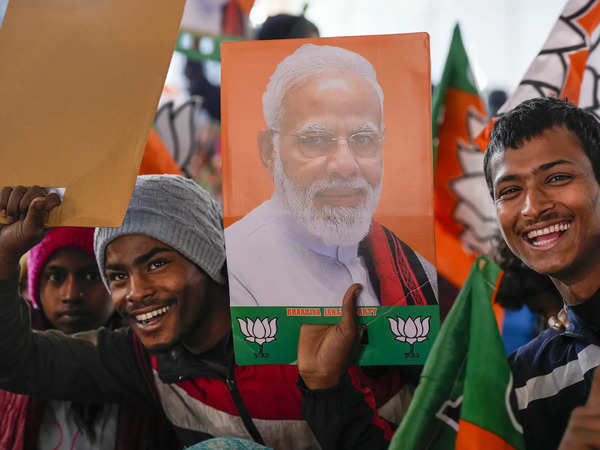The Communist Party of India [CPI-M] has revised its stance on the characterization of Prime Minister Narendra Modi’s administration. In a draft political resolution circulated to state units, the party asserts that while the Bharatiya Janata Party -led government exhibits “neo-fascistic characteristics,” it does not warrant the label of a fascist regime.
This draft resolution, prepared ahead of the CPI-M’s 24th Party Congress scheduled for April in Madurai, delineates the party’s nuanced position. The document states: “We have indicated that the current political framework under the BJP-RSS operates as a Hindutva-corporate authoritarian regime that exhibits neo-fascistic traits. We are not asserting that the Modi government is a fascist or neo-fascist administration. Nor are we defining the Indian State as a neo-fascist entity.”
The CPI-M’s assessment contrasts with the positions of its leftist allies. The Communist Party of India has unequivocally labeled the Modi government as a fascist regime, while the Communist Party of India [CPI ] contends that fascism has already taken root in the country. The CPI-M, however, maintains a distinct perspective, emphasizing the emergence of neo-fascist tendencies without categorizing the government or the state as wholly fascist.
The draft resolution further elaborates on the party’s theoretical framework, distinguishing between “classical fascism” of the early 20th century and contemporary “neo-fascism.” It posits that classical fascism arose from inter-imperialist conflicts, whereas neo-fascism is a byproduct of crises associated with neo-liberalism. The document underscores that after a decade of uninterrupted BJP rule, there has been a consolidation of political power within the BJP-RSS nexus, leading to manifestations of neo-fascist characteristics.
This internal reassessment has ignited a spectrum of reactions across the political landscape. Senior CPI leader Binoy Viswam has called for the CPI-M to amend its position, asserting, “The Modi government led by the RSS is a fascist government. The RSS is a complete fascist organization. The BJP government led by the RSS is also a fascist government. The CPI-M will have to change its stand.”
Conversely, the Bharatiya Janata Party has welcomed the CPI-M’s revised stance. BJP leader M.T. Ramesh remarked, “Better late than never,” interpreting the CPI-M’s position as a belated acknowledgment of the BJP’s governance approach.
The Indian National Congress has seized upon the CPI-M’s draft resolution to critique the party’s ideological consistency. Senior Congress leader Ramesh Chennithala questioned, “Will the CPM now declare BJP a progressive party? The party and the LDF have been secretly and openly collaborating with the BJP. Wasn’t their victory in the last assembly elections secured with BJP votes? The CPM is deceiving the people.”
Within the CPI-M, the draft resolution has prompted introspection and debate. Senior CPI-M leader Thomas Isaac clarified that the document aims to provide a precise explanation of specific terminology used in the political resolution. He stated, “The note in the document is merely an explanation of a particular phrase in the political resolution. The party’s position remains unchanged. The Modi government exhibits fascist tendencies but has not yet turned into a fully-fledged fascist regime.”
The draft political resolution has been disseminated for discussion among party units and the public in preparation for the upcoming Party Congress. Historically, once such drafts are released, further modifications through additional notes are uncommon. The resolution’s language reflects the CPI-M’s strategic approach to countering the BJP-RSS’s influence, aiming to balance ideological clarity with practical political considerations.
As the Party Congress approaches, the CPI-M’s internal discourse on this issue is expected to continue, potentially influencing the party’s future strategies and alliances. The outcome of these deliberations may also impact the broader leftist movement in India, as parties grapple with defining and responding to the current political climate under the Modi administration.




 Eight Of Top-10 Most Valued Firms Erodes Rs 1.65 Lakh Crore
Eight Of Top-10 Most Valued Firms Erodes Rs 1.65 Lakh Crore 